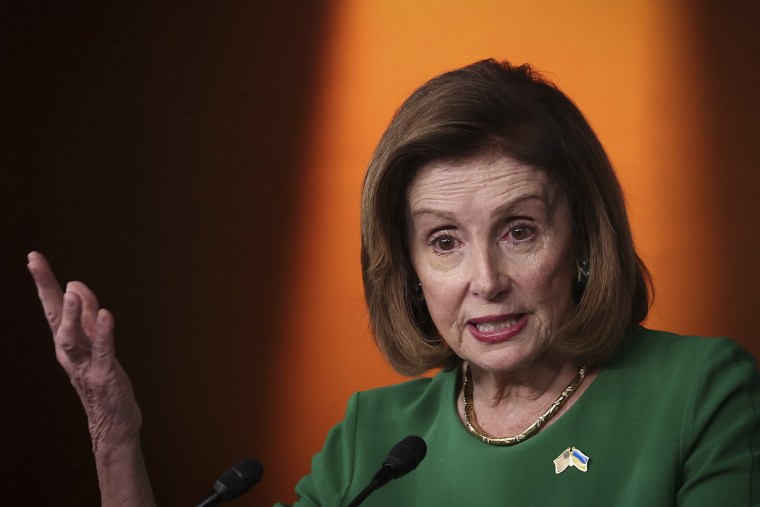WASHINGTON — House Speaker Nancy Pelosi suggested in frustration Tuesday that indictments could be handed down in the nationwide baby formula shortage after the dust settles.
“I think that when all of this is done — I’m not associating my colleagues with what I’m going to say right now; I’m just saying it myself — I think there might be a need for indictment,” Pelosi, D-Calif., told reporters at a news conference about legislative plans to address the shortage and prevent future ones.
Pelosi did not specify who might be indicted, and a spokesman did not clarify her remarks.
Pelosi spoke shortly after House Appropriations Committee Chair Rosa DeLauro, D-Conn., took aim at both the Food and Drug Administration and infant formula manufacturer Abbott Nutrition.
“We are going to investigate Abbott, and the chips should fall where they may,” DeLauro said. “People have to be accountable, whether it is at FDA or whether it is at Abbott.”
Abbott shuttered its plant in Sturgis, Michigan, after the FDA opened an investigation into the facility. Four babies who drank Abbott's formula contracted bacterial infections and were hospitalized. Two of them died. Abbott has denied any wrongdoing.
Pelosi called said infants' deaths were "sinful."
Several congressional committees have opened investigations, including the House Oversight and House Energy and Commerce panels.
The Energy and Commerce Committee said Tuesday that top FDA officials and executives from three major baby formula companies will testify at a hearing May 25, among them FDA Commissioner Robert Califf and Christopher Calamari, a top Abbott executive.
The FDA and Abbott announced an agreement Monday to resume operations at the Michigan plant, which has been shut down since February.
The Justice Department filed a complaint alleging Abbott had operated its Sturgis facility “under conditions and using practices that failed to comply with regulations designed to ensure the quality and safety of infant formula, including protection against the risk of contamination from bacteria.”
Lawmakers are under pressure to act quickly. The House will vote Thursday on a pair of bills to help families affected by the formula shortage.
The Access to Baby Formula Act, introduced by Rep. Jahana Hayes, D-Conn., would allow more formula to be purchased with money from a federal program that aids low-income women, infants and children.
The second bill, written by DeLauro, would send $28 million to the FDA to help boost the supply of infant formula and prevent future shortages. Some of the money would pay for initiatives like supply-chain monitoring, but the bulk of it would pay for additional FDA staff members, including inspectors who could help approve domestic or international formula manufacturing companies.
“FDA does not have the adequate inspection force to be able to do that and to do it in a timely way,” DeLauro said. “So the crux of this is providing infrastructure ... in order to do what needs to get done. And that is about, as quickly as possible, how we get product in and get it on the shelves.”

